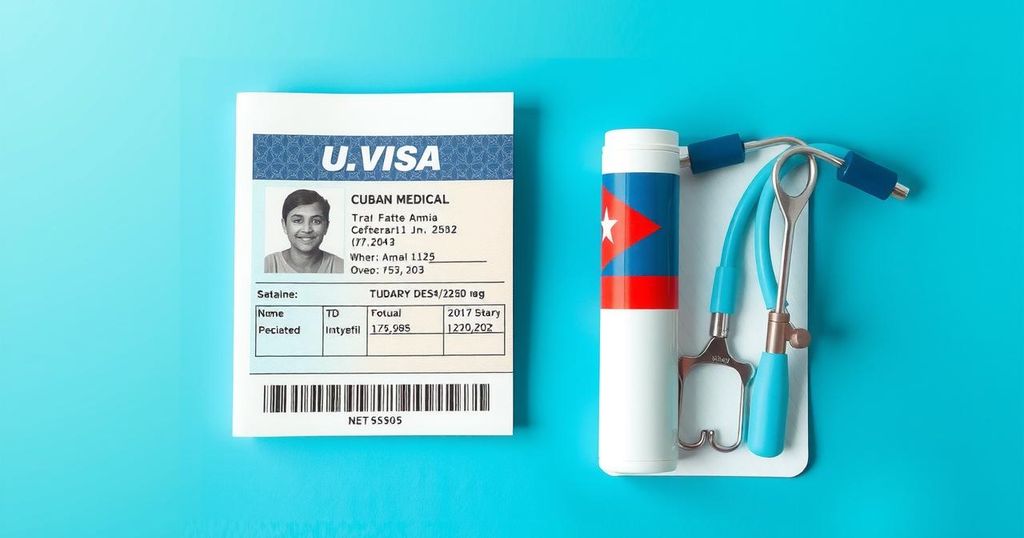Jamaica’s Diplomatic Dilemma: U.S. Visa Threat and Cuban Medical Support

The United States has threatened to cut visas for officials from nations involved in Cuban medical missions, creating tension in Jamaica’s diplomatic relations. Leaders from several Caribbean nations are prepared to sacrifice their U.S. visas to retain Cuban medical personnel, highlighting the impact of these services on public health. The situation calls for careful diplomatic navigation.
Michael Manley, former Prime Minister of Jamaica, inspired many when he declared that his nation would stand tall and not be submissive. This sentiment emerged during a significant ideological conflict between the People’s National Party (PNP), which was aligned with Cuba, and the Jamaica Labour Party (JLP), supported by the United States in the 1970s. Currently, the U.S. government’s warning to revoke visas for officials from countries participating in Cuban medical missions presents a substantial challenge for Jamaica’s diplomatic relations.
Jamaica, alongside various Caribbean nations that have benefited from Cuban medical missions, finds itself in a precarious position. These nations maintain close ties with both Cuba and the United States, which serves as their primary trading partner and a haven for numerous Jamaican migrants. Unlike the assertive stance exhibited by Mr. Manley, it is anticipated that Prime Minister Dr. Andrew Holness will approach this situation with greater diplomatic nuance, particularly in light of the current U.S. administration’s policies.
Cuba’s contributions to Jamaica during difficult economic periods cannot be overlooked, with numerous medical professionals and educational programs aiding the country. Since its revolution in 1959, Cuba has dispatched medical personnel globally, addressing health crises, including cholera outbreaks and Ebola. The potential loss of Cuban medics would pose a significant detriment to Jamaica’s healthcare system, especially as domestic healthcare professionals are increasingly attracted to wealthier nations.
Several Caribbean leaders, including those from Trinidad and Tobago, St Vincent and the Grenadines, and Barbados, have expressed their willingness to sacrifice their U.S. visas in order to retain Cuban medical personnel. For instance, Trinidad and Tobago’s Prime Minister, Keith Rowley, articulated that he would prefer to lose his visa rather than betray the trust placed in Cuban professionals. Similarly, Prime Minister Ralph Gonsalves of St Vincent indicated that discontinuing Cuban medical support would jeopardize life-saving services.
Furthermore, Jamaican Foreign Minister Kamina Johnson Smith emphasized the vital role that 400 Cuban medical personnel play within Jamaica’s healthcare framework. The resolve of Caribbean leaders to prioritize public health over diplomatic considerations underscores the intricate balance these nations must maintain amidst external pressures.
The current diplomatic challenge posed by the United States regarding the revocation of visas for officials from nations participating in Cuban medical missions reflects a significant tension in Jamaica’s international relations. As Caribbean nations assess their historical ties to both Cuba and the U.S., they confront the pressing issue of how best to preserve essential medical services while safeguarding vital diplomatic relationships. The willingness of leaders to prioritize public health indicates a crucial moment for regional solidarity in the face of external pressures.
Original Source: www.jamaicaobserver.com







